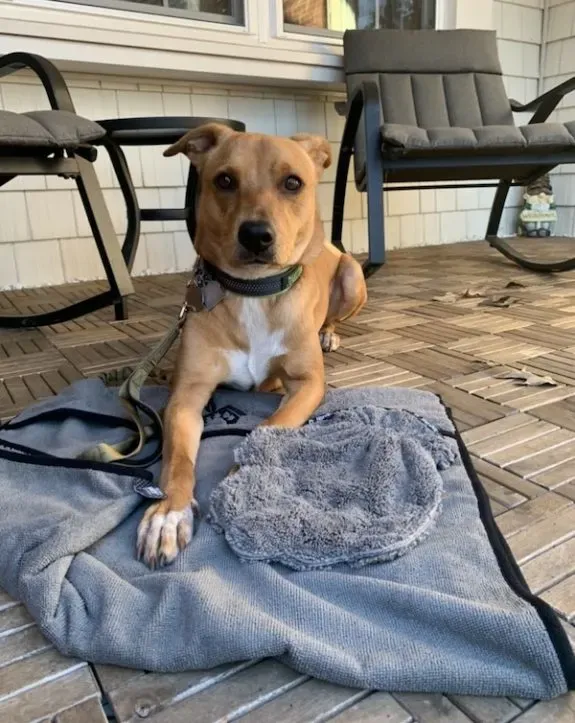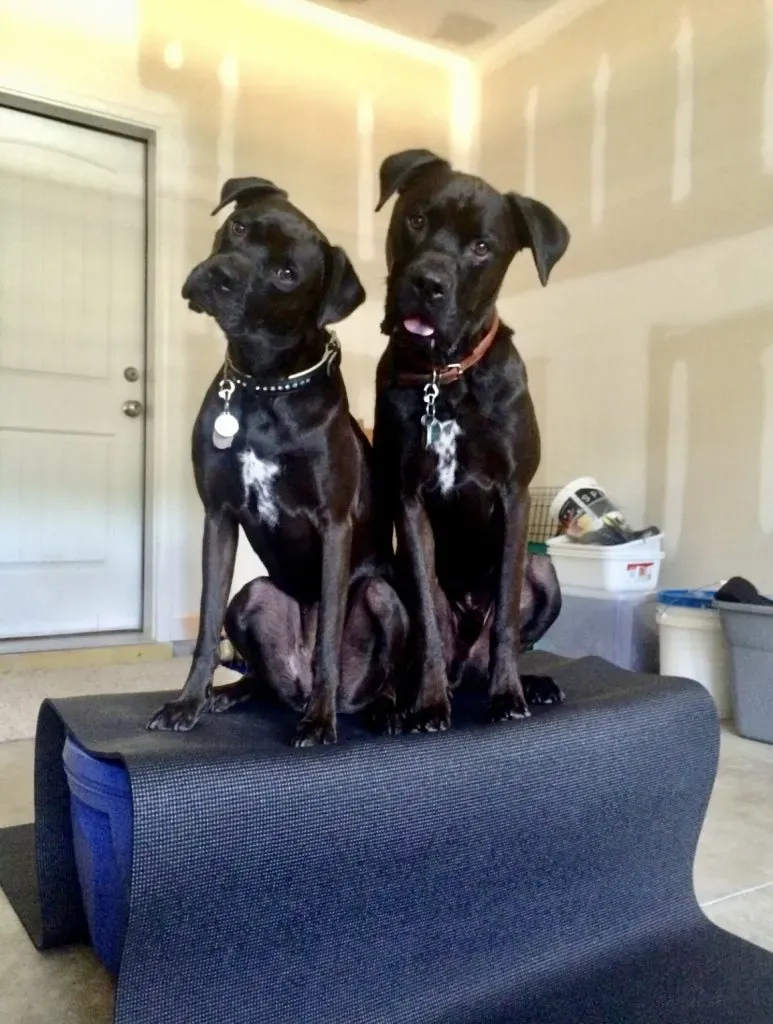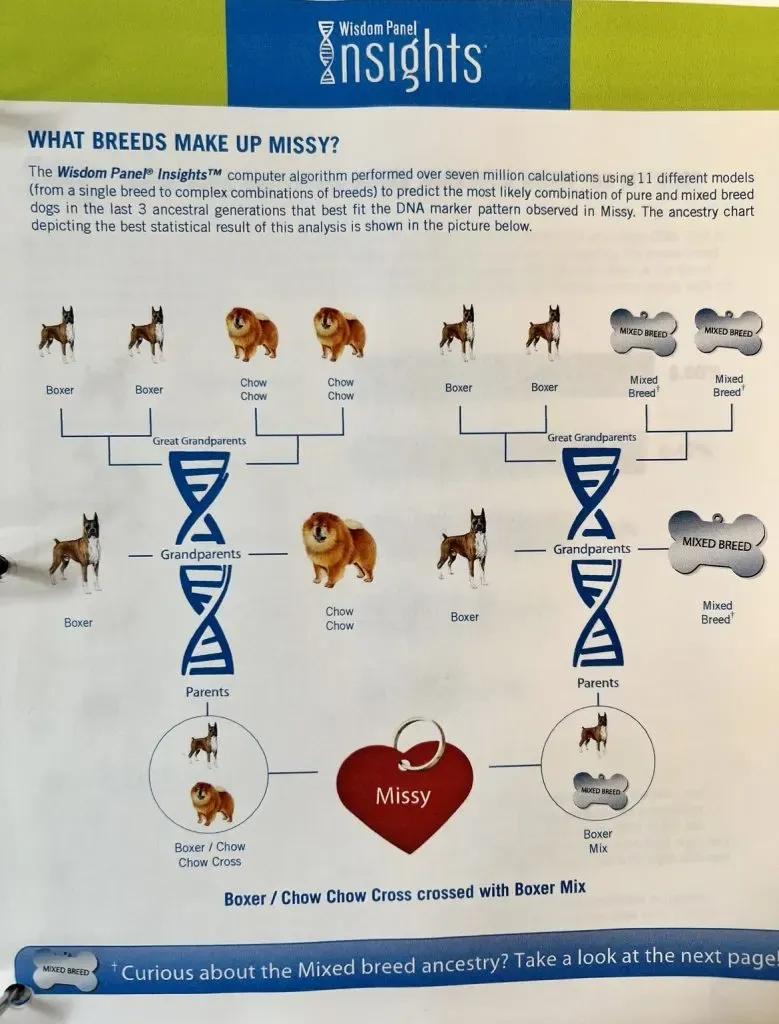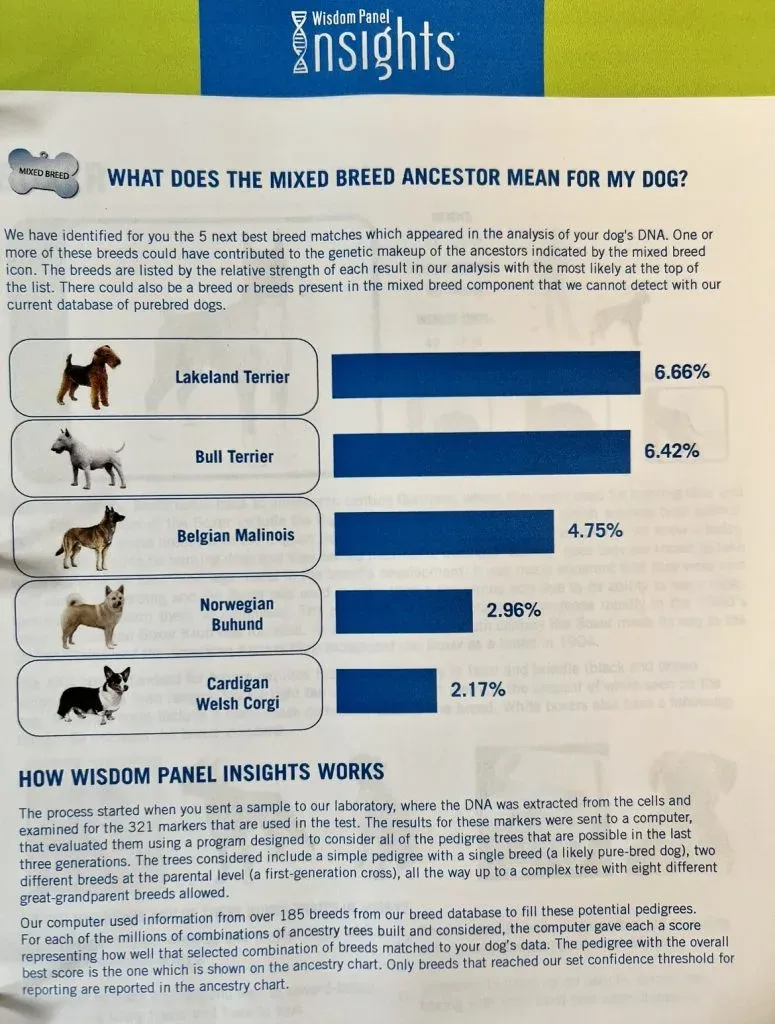Bringing a dog into your life can be one of the most enriching experiences, especially for seniors seeking companionship, joy, and a gentle push towards an active lifestyle. While the “best” dog is always a personal choice, the specific needs and lifestyle of seniors often make Best Small Mixed Breed Dogs For Seniors an ideal consideration. These delightful hybrids often combine desirable traits from two or more purebreds, offering a unique blend of temperament, manageability, and charm perfect for an older owner.
Choosing a furry friend means considering various factors: their size, energy levels, grooming requirements, and overall temperament. Small mixed breeds frequently strike a wonderful balance, providing affection and a sense of purpose without overwhelming physical demands or challenging handling. This guide will explore why small mixed breed dogs are particularly well-suited for seniors and highlight some excellent choices that could become your next beloved family member. Many seniors specifically look for [best dogs for seniors to adopt](https://dogcarestory.com/best-dogs-for-seniors-to-adopt/), and small mixed breeds are often found in shelters, waiting for their forever homes.
Why Small Mixed Breed Dogs Are Often Ideal for Seniors
When it comes to senior pet ownership, certain characteristics become paramount. Small mixed breed dogs often tick many of these boxes, making them a top choice.
Manageability and Safety
Smaller dogs are generally easier to handle, lift, and transport. This is a significant advantage for seniors who might have limited mobility or strength. A small dog can be comfortably picked up for a cuddle, lifted into a car, or managed on a leash without putting strain on the owner. Their compact size also reduces the risk of accidental falls, as they are less likely to trip an owner compared to larger, more boisterous breeds.
Lower Exercise Requirements
While all dogs need regular exercise, many small mixed breeds have moderate to low energy levels. This means they are content with shorter walks, indoor playtime, and lap snuggles, aligning well with the activity levels of many seniors. They still encourage daily movement, which is beneficial for the owner’s health, but won’t demand hours of vigorous activity.
Companionship and Emotional Support
Dogs are known for their ability to provide unconditional love and companionship, combating loneliness and promoting mental well-being. Small mixed breeds often excel as affectionate lap dogs, happy to spend their days close to their owners. Their comforting presence can significantly enhance a senior’s quality of life.
 Wally, a calm mixed breed dog, resting on a cozy blanket, ideal companion for seniors.
Wally, a calm mixed breed dog, resting on a cozy blanket, ideal companion for seniors.
Key Considerations When Choosing a Small Mixed Breed for Seniors
Before welcoming a new canine companion, it’s essential to consider specific traits that ensure a harmonious match for a senior household.
Temperament
Look for breeds known for being calm, gentle, affectionate, and patient. Dogs that are overly anxious, prone to excessive barking, or have strong prey drives might not be the best fit. A steady, predictable temperament is key.
Exercise Needs
As mentioned, moderate to low energy levels are usually preferred. Daily walks of 20-30 minutes, combined with indoor play, are often ideal. Avoid breeds that require extensive running or intense mental stimulation if you cannot consistently provide it.
Grooming Requirements
Consider the time and effort you’re willing to dedicate to grooming. Dogs with short, low-shedding coats are often easier to maintain. Long-haired breeds may require regular brushing to prevent mats, and curly-coated dogs might need professional grooming appointments. Hypoallergenic traits can also be a plus for seniors with allergies.
Trainability
An easily trainable dog makes for a more pleasant companion. Intelligent breeds that respond well to positive reinforcement are ideal, as basic obedience and house-training are crucial for living together peacefully.
Health and Longevity
While mixed breeds often benefit from “hybrid vigor” (reduced incidence of genetic diseases compared to some purebreds), it’s still important to research common health issues associated with the parent breeds. Choosing a dog with a good potential for a long, healthy life is always a wise decision.
Home Environment
Consider your living situation. Do you live in an apartment or a house with a yard? Most small mixed breeds adapt well to apartment living, provided they get adequate daily exercise and mental enrichment.
Top Small Mixed Breed Dogs Recommended for Seniors
Drawing from our expertise and understanding of senior lifestyles, here are some of the best small mixed breed dogs for seniors, known for their gentle nature, manageable size, and loving companionship.
Peekapoo (Pekingese & Poodle Mix)
This charming mix inherits the Poodle’s intelligence and low-shedding coat along with the Pekingese’s dignified yet affectionate nature. Peekapoos are typically playful but calm, making them excellent lap dogs. Their small size makes them perfect for apartment living, and their minimal shedding is a bonus for those with allergies or who prefer less cleanup. They are generally easy to train and devoted companions.
Cav-A-Malt (Cavalier King Charles Spaniel & Maltese Mix)
The Cav-A-Malt combines the sweet, gentle disposition of the Cavalier King Charles Spaniel with the playful affection of the Maltese. These dogs are known for their loving nature and desire to be close to their owners. They thrive on companionship and are content with moderate exercise, making them perfect for seniors seeking a devoted, cuddly friend. Their soft, flowing coats do require regular brushing.
Maltipoo (Maltese & Toy/Miniature Poodle Mix)
A highly popular “designer dog,” the Maltipoo is cherished for its adorable appearance and friendly personality. Maltipoos are typically very affectionate, gentle, and adaptable, fitting well into various living situations, including apartments. They are also low-shedding and often considered hypoallergenic, which is great for seniors with sensitivities. Their intelligence from the Poodle parent makes them relatively easy to train.
Cav-A-Chon (Cavalier King Charles Spaniel & Bichon Frisé Mix)
Combining the cheerful and playful Bichon Frisé with the gentle Cavalier, the Cav-A-Chon is a delightful companion. These dogs are known for their happy-go-lucky attitude, affectionate nature, and adaptability. They enjoy playtime but are equally happy to relax by their owner’s side. Their moderate energy levels are easily met with daily walks, and their low-shedding, curly coat is a plus for allergy sufferers, though it requires regular grooming to prevent matting.
Corgi-Bichon (Cardigan Welsh Corgi & Bichon Frisé Mix)
For seniors who might prefer a slightly sturdier small dog with an engaging personality, the Corgi-Bichon is an excellent choice. This mix brings together the Corgi’s intelligence and playful spirit with the Bichon’s cheerful disposition. They are known for being affectionate and sociable, and while they enjoy activity, their exercise needs are generally manageable. Their compact size makes them suitable for smaller homes, and their bright minds mean they are often quick to learn.
Shih-Poo (Shih Tzu & Poodle Mix)
The Shih-Poo blends the Shih Tzu’s outgoing, affectionate personality with the Poodle’s intelligence and low-shedding coat. These small dogs are natural entertainers and loving companions, thriving on human interaction. They are adaptable to various living environments and their exercise needs are modest, making them ideal for seniors looking for a playful yet manageable pet. Regular grooming is essential for their fluffy coats.
Cockapoo (Cocker Spaniel & Poodle Mix)
A classic hybrid, the Cockapoo is known for its sweet disposition and eager-to-please nature. Combining the affectionate Cocker Spaniel with the intelligent Poodle, Cockapoos are highly trainable, good-natured, and thrive on companionship. They are small to medium-sized (depending on the Poodle parent) and possess a moderate energy level that can be met with daily walks and playtime. Their low-shedding coat is another attractive feature. If you’re wondering about local options, many seniors also search for [senior dogs to adopt in my area](https://dogcarestory.com/senior-dogs-to-adopt-in-my-area/) or specifically [senior dogs to adopt near me](https://dogcarestory.com/senior-dogs-to-adopt-near-me/) to find dogs like these.
Important Considerations Before Bringing Your Small Mixed Breed Home
Beyond choosing the right breed, there are practical steps to ensure a smooth transition and a happy life for both you and your new companion.
Adoption vs. Breeder
Whether you choose to adopt from a shelter or rescue, or purchase from a reputable breeder, ensure you do thorough research. Shelters are often full of wonderful mixed-breed dogs looking for a second chance. If you’re considering [dogs for seniors for sale](https://dogcarestory.com/dogs-for-seniors-for-sale/), always choose a breeder who prioritizes the health and temperament of their dogs.
 Two adorable black mixed breed dogs sitting patiently, highlighting the variety of mixed breeds available for adoption.
Two adorable black mixed breed dogs sitting patiently, highlighting the variety of mixed breeds available for adoption.
Vet Visits and Ongoing Care
A foundational aspect of pet ownership is regular veterinary care. Schedule a check-up soon after bringing your dog home and commit to routine preventative care. This ensures your dog remains healthy and allows for early detection of any potential health issues. Also, consider the specific nutritional needs of your elderly dog; for instance, you might wonder, [can i give my elderly dog ensure](https://dogcarestory.com/can-i-give-my-elderly-dog-ensure/) and consult your vet for tailored dietary advice.
Training and Socialization
Even small dogs benefit immensely from basic obedience training and proper socialization. This helps them become well-behaved members of the family and ensures they are comfortable around new people, places, and other animals. Short, positive training sessions are often most effective.
Home Environment Setup
Prepare your home for your new arrival. This includes providing a comfortable bed, food and water bowls, appropriate toys, and a designated space for them to feel secure. For seniors, ensure easy access for your dog, such as small ramps if there are steps your dog might struggle with.
Considering a Dog DNA Test for Your Mixed Breed?
While choosing a small mixed breed for seniors often comes down to observing their temperament and size, many owners are naturally curious about their dog’s genetic background. Our team member, for example, is the proud owner of Wally, a medium-sized Feist mix, whose exact lineage remains a delightful mystery without a DNA test.
Before Wally, the author had two Boxer mixes, Missy and Buzz. Their curiosity led them to conduct DNA tests on Missy and Buzz. Dog DNA tests are a fun and insightful way to uncover your mixed breed pup’s family tree, often screening for hundreds of breeds. Some tests also provide valuable information about hereditary disease predispositions and can even connect you with owners of your dog’s siblings.
These tests typically range in price from $65-$160 and only require a simple cheek swab, with results usually available within 1-4 weeks. The author used the Wisdom Panel dog DNA test for Missy and Buzz, discovering they also had Chow-Chow, Lakeland Terrier, Bull Terrier, Belgian Malinois, Norwegian Buhund, and Cardigan Welsh Corgi DNA! It’s incredible how many breeds can contribute to a mixed dog’s unique genetic makeup, often surprising even experienced dog owners. This knowledge can also help you understand some of your dog’s behaviors or health tendencies.
 Missy, a mixed breed dog, showcased with a Wisdom Panel DNA test result, revealing diverse genetic makeup.
Missy, a mixed breed dog, showcased with a Wisdom Panel DNA test result, revealing diverse genetic makeup.
 Detailed results from a Wisdom Panel DNA test, illustrating the complex ancestry of a mixed breed dog.
Detailed results from a Wisdom Panel DNA test, illustrating the complex ancestry of a mixed breed dog.
Conclusion
Choosing the best small mixed breed dogs for seniors is a rewarding journey that brings immense joy and companionship. By focusing on temperament, manageable exercise needs, size, and grooming, seniors can find a perfect canine partner that complements their lifestyle. Remember that while specific breed mixes offer guidelines, each dog is an individual with its own unique personality.
Whether you adopt a senior mixed breed looking for a quiet home or a playful puppy, the key is to ensure the match benefits both you and your new friend. Always prioritize a veterinary consultation to discuss your dog’s health and care plan, and consider a DNA test if you’re curious about their heritage. With thoughtful consideration, a small mixed breed dog can bring years of unconditional love and happiness into a senior’s life.
